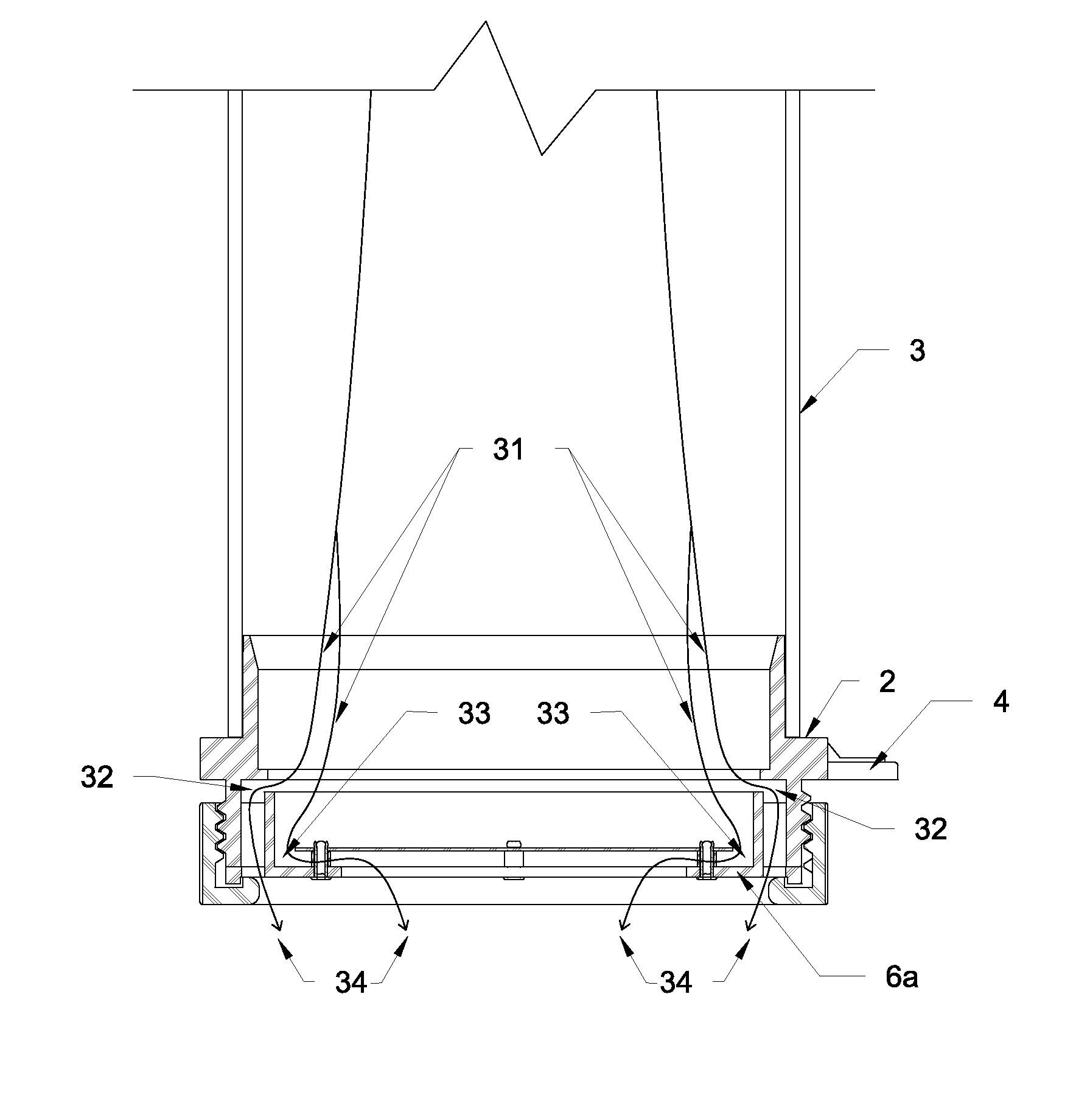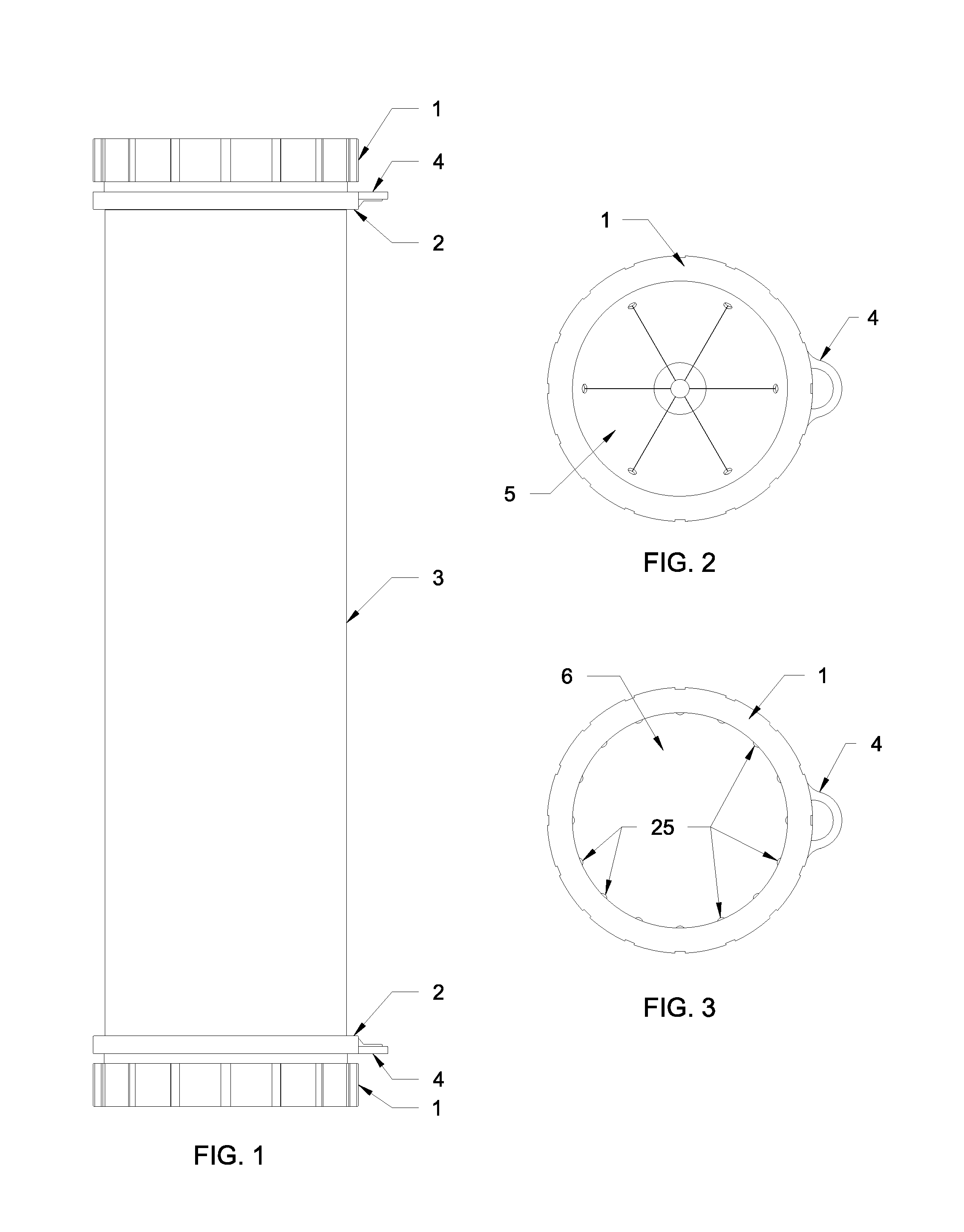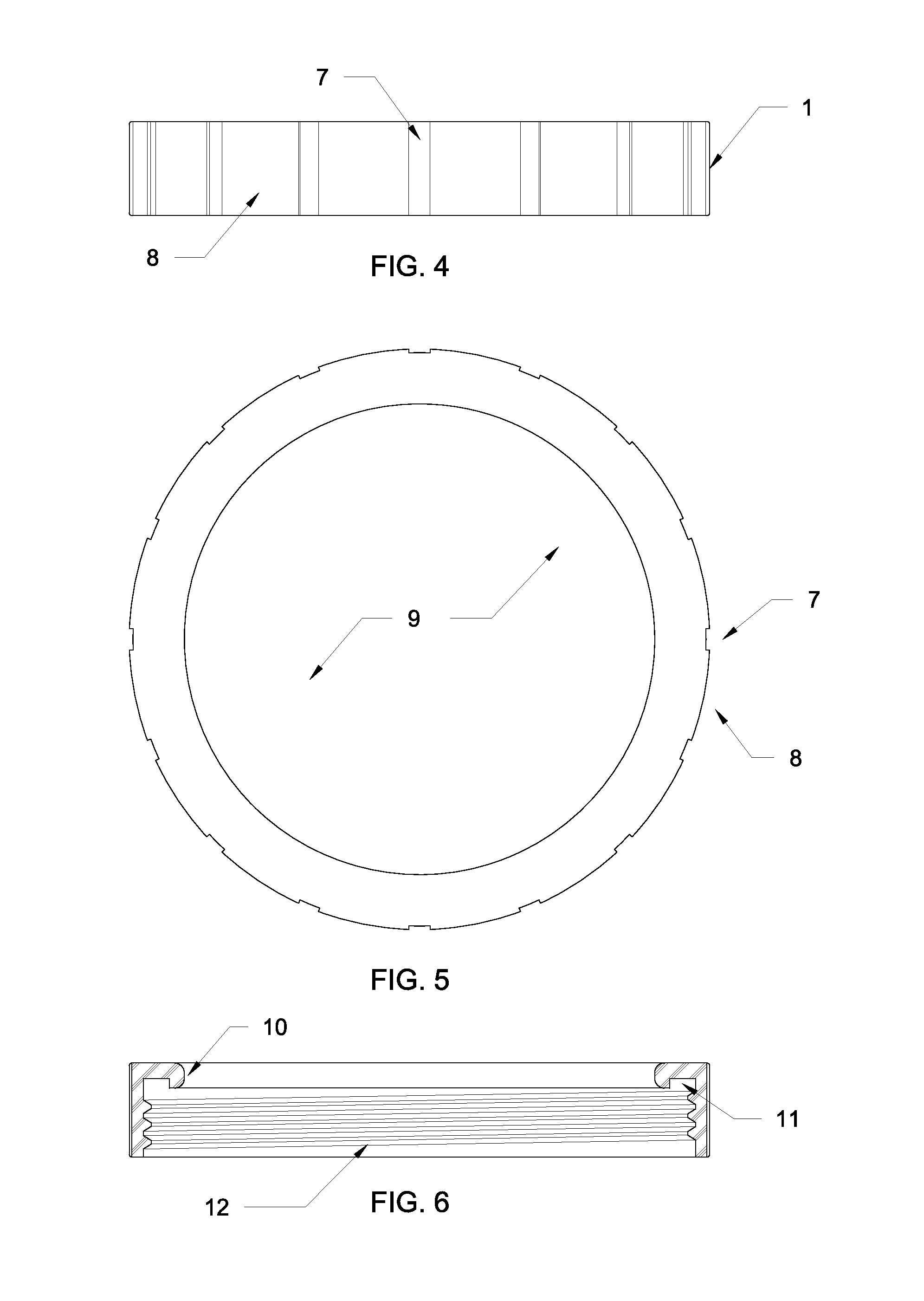Marine containment device
a technology for holding devices and specimens, which is applied in pisciculture and aquaria, application, animal husbandry, etc., can solve the problems of reducing the native fish population by up to 90%, continuing to consume native fish at unsustainable rates, and consuming native fish in unsustainable rates. , the manner of containment is time-consuming and labor-intensive for the diver
- Summary
- Abstract
- Description
- Claims
- Application Information
AI Technical Summary
Benefits of technology
Problems solved by technology
Method used
Image
Examples
Embodiment Construction
[0036]The following detailed description of the invention, along with the accompanying drawings, will be thoroughly discussed so as to convey the scope of the invention to those skilled in the art. Like numbers refer to like elements throughout.
[0037]FIGS. 1, 2 and 3 shows the side view, top view and bottom view, respectively, of the invention as assembled and ready to use. Embodiments of the invention are shown, as: body 3, cap 1, flange 2, the flange loop 4, the funnel 5 and the safety valve 6.
[0038]The body 3 of the invention can be of various materials, such as plastics, metals and fabric, or a combination thereof, so long as these meet certain criteria for puncture resistance. The body can also be used to display product identity as well as product instruction and maintenance.
[0039]FIGS. 4, 5 and 6 show three views of the cap 1, respectively the side view, top view and a section through.
[0040]The cap 1 embodies certain design elements that allows the diver to easily place and r...
PUM
 Login to View More
Login to View More Abstract
Description
Claims
Application Information
 Login to View More
Login to View More - R&D
- Intellectual Property
- Life Sciences
- Materials
- Tech Scout
- Unparalleled Data Quality
- Higher Quality Content
- 60% Fewer Hallucinations
Browse by: Latest US Patents, China's latest patents, Technical Efficacy Thesaurus, Application Domain, Technology Topic, Popular Technical Reports.
© 2025 PatSnap. All rights reserved.Legal|Privacy policy|Modern Slavery Act Transparency Statement|Sitemap|About US| Contact US: help@patsnap.com



